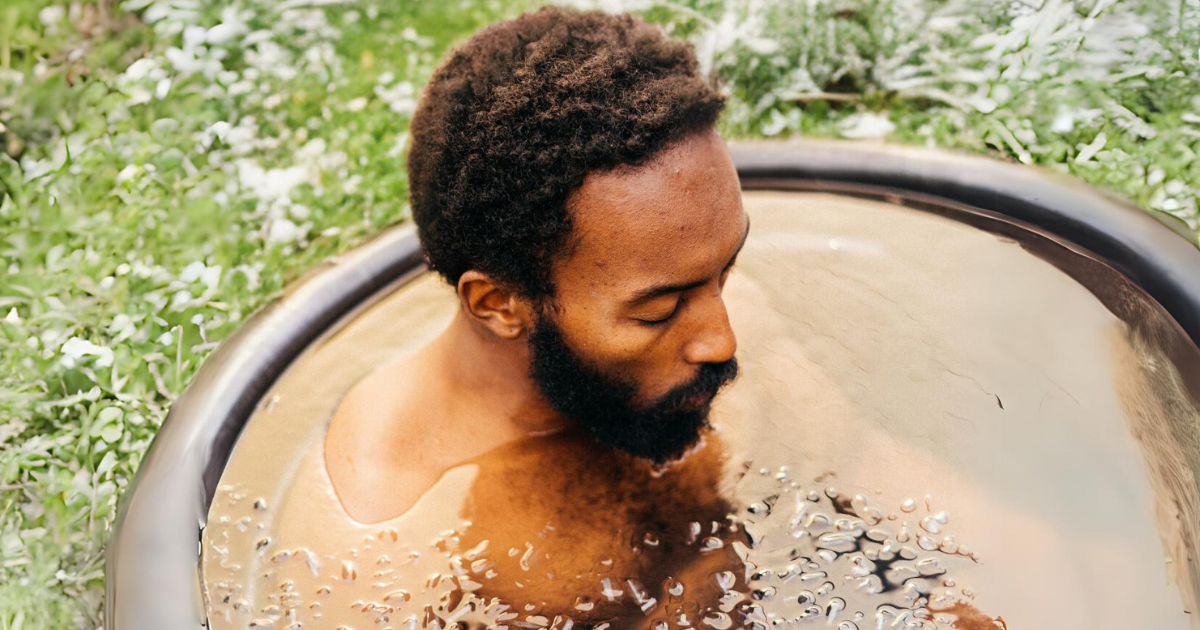As the new year unfolds, many of us will embark on a journey to create new habits, seeking a fresh start and an opportunity to reset our well-being. However, January and the new year can also bring overwhelming pressure to make drastic changes.
Instead of giving in to the chaos of big resolutions, we invite you to take a step back, breathe and consider incorporating small yet impactful steps into your daily routine.
Take a Cold Plunge
You may have come across a social media post of someone taking a cold plunge, prompting curiosity about the appeal of this icy challenge. Cold plunges are not a modern fad – they are rooted in ancient practices with scientific validation for their impact on mental health.
Submerging yourself in cold water triggers the release of adrenaline and dopamine neurotransmitters associated with improved mood and reduced anxiety. This age-old ritual provides a natural and invigorating way to address feelings of depression and anxiety.
It’s important to note that cold plunges come with risks, and individuals should be mindful of their health conditions and consult with a healthcare professional before attempting them.
If the idea of a full-fledged cold plunge feels too extreme, there are milder alternatives that also have benefits. You can try putting a cold compress on the back of your neck or incorporating short bursts of cold water during your shower. Whichever method you choose, incorporating deep, relaxed breathing is key.
Explore a New Hobby
Engaging in activities that bring joy adds vitality to your daily routine but also contributes to your mental and physical health. Even a 10-minute walk in the winter cold can refresh your mind, boost energy levels and foster a positive mood.
Exploring hobbies that put you in a “flow state,” where you get so into the activity that time seems to vanish, can be rewarding. In a flow state, you’re fully absorbed and focused, making the experience more enjoyable.
Whether it’s the calming strokes of a paintbrush, the intricate maneuvers of knitting or the rhythmic motion of physical activity, discovering a hobby that resonates with you can provide a sense of accomplishment, ease and happiness.
Eat Better, Feel Better
If you’ve ever made a “gut” decision, you might be surprised to learn that your second brain, the gut, could be influencing more than instincts. Studies suggest that modifying the composition of bacteria in your gut could have positive effects on brain health.
Eating fiber-rich foods like vegetables and whole grains, along with prebiotics (found in onions, garlic, bananas) and probiotics (in yogurt, kefir, and kimchi), supports gut bacteria. These bacteria produce compounds like serotonin which impact mood, sleep and well-being.
By prioritizing a diet that supports gut-friendly bacteria, you may not only find that it fosters a healthier digestive system but also paves the way for a happier and more balanced mind. If you need of an easy recipe idea, give this easy corn-ucopia one a try.
Pay Attention to Your Sleep
Quality sleep is a cornerstone of overall well-being, impacting both physical and mental health. Adequate and restful sleep plays a crucial role in supporting the body’s immune system, cognitive function and emotional resilience.
Not getting enough sleep regularly can increase the risk of mental and physical conditions. To enhance your sleep quality and cultivate healthy habits check out these practical tips, encompassing a holistic approach to bedtime routines, sleep environment optimization and stress management techniques.
The other side of sleep that doesn’t get as much attention is sleeping too much. Oversleeping can lead to daytime fatigue, a lack of energy and potential health risks. Getting 7-9 hours of sleep a night is the golden ticket to a healthier, more energized you.
Embrace Self-Compassion
As we step into 2024, let’s anchor our pursuit of well-being in the transformative power of self-compassion. Kristen Neff, a self-compassion teacher once wisely said, “Self-compassion is simply giving the same kindness to ourselves that we would to others.” Thus, whatever your new habits are for the new year, remember to be kind to yourself.
To empower your journey, see the free meditations and worksheets aimed at nurturing self-compassion offered by Positive Psychology. Creating new habits is a marathon, not a sprint, with each path marked by successes and challenges.
Embrace the process, celebrate your resilience and forge ahead with the understanding that each step, even those that feel like a stumble, propels you towards a more compassionate version of yourself this year.


